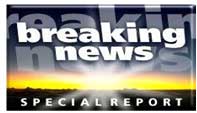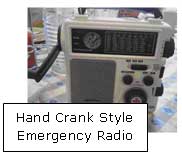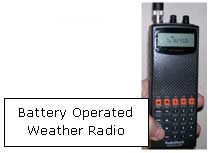Why This Is Important

In any crisis, people need to have a reliable way of getting news and communicating with others. Pandemic flu has the potential of causing disruption to many essential services, including electricity, phone, cable, and internet services.
a. Getting timely emergency news can be crucial to both health and safety.
b. For medical emergencies and certain chronic illnesses, backup communications are a necessity.

Emergency News
- A good windup, solar, or battery-operated radio should be in every household. AM/FM is fine, although some people may appreciate having additional shortwave bands. If needed, store extra batteries.

- A battery-operated weather radio should also be included, preferably one that supports the S.A.M.E. alert or a tone alarm.
Back-up Communication
- Land-line telephone. This is the phone that you just plug in to your house phone jack. It is powered by amplifiers in the phone system, so it may work even if your power is out. Cordless phones or ones that are plugged into an electrical outlet do not work if the power is out.

- Cell phones use repeaters (at cell towers) to receive and then re-broadcast messages. If the cell tower has no backup electrical supply, your cell phone may be useless, regardless of how fresh your batteries are.
- Radios. Several types are available.

- Handheld FRS (family radio service) radios. The new generation of walkie-talkies. They are inexpensive, easy to use, and can provide neighborhood communication.
- no license required
- range: ½ to 1 mile
- Handheld GMRS (general mobile radio service) radios. Similar to FRS radios, except:
- license required
- range: 3-5 miles
An internet search of "FRS- GMRS: will provide detailed information on the capabilities, advantages, and disadvantages of these radios.
- Ham Radio. For those needing radio backup over longer distances, consider becoming an amateur radio operator. A license is required for this, but the Morse code requirement has been eliminated. For more information, see The National Association for Amateur Radio.
- These radios would be useful if phone lines were down but do require electricity or batteries. For battery-powered equipment, a good backup is a combination of rechargeable batteries and a small solar charger. Chargers for rechargeable batteries are smaller than a shoebox.